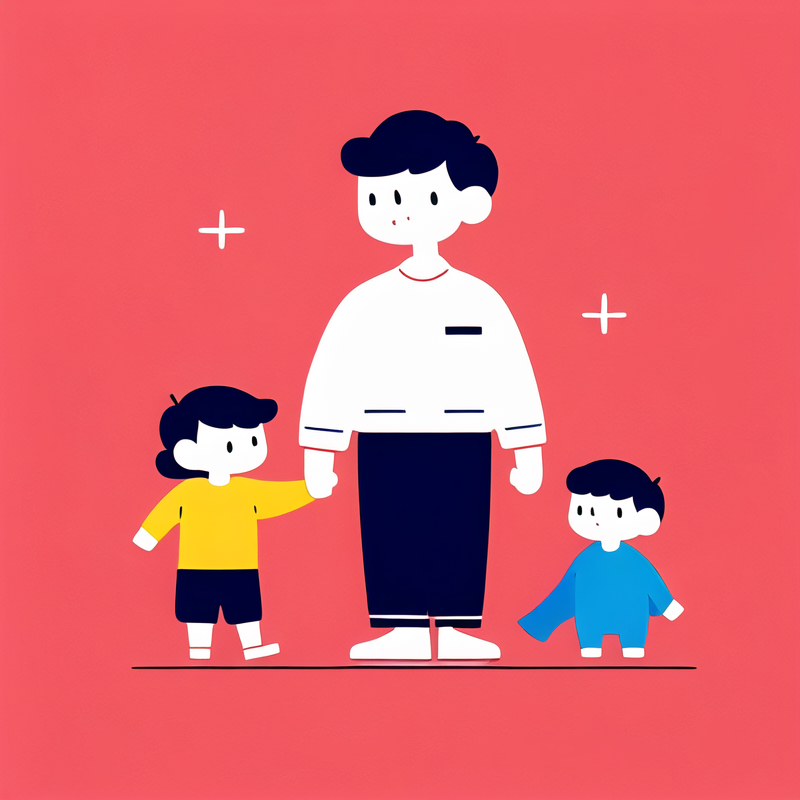Understanding the Toddler Age Range
When does toddler age end? Defining the toddler age range is crucial for parents as they track and support their child’s development. Typically, the toddler period starts at about 12 months, when a baby begins taking their first steps, until approximately 36 months, when the child becomes more independent. During this time, key developmental milestones are achieved, including walking, talking, self-feeding, and beginning to understand and follow simple instructions.

Parents often wonder ‘when does toddler age end?’ Generally, it ends as the child approaches their third birthday. However, it is important to remember that every child is unique. Not all children follow the exact timelines for development. Signs of the end of the toddler stage can include improved motor skills, more complex sentence structures, and the ability to play cooperatively with other children.
As children transition towards the end of the toddler age range, their curiosity and desire for independence grow. They start asking many questions, want to do things on their own, and show more interest in playing with peers. This period is a blend of exciting developments as well as possible challenges, as children learn to navigate a broader world beyond the familiar one they experienced as toddlers.
Milestones of Toddler Development
Toddlerhood is marked by numerous developmental milestones that herald a child’s growth. Critical advancements include mastering the art of walking and beginning to run with more coordination. Children in this age range also make significant strides in language, progressing from babbling to forming simple sentences. Self-feeding evolves with improved dexterity, and they can switch from finger foods to more complex utensils like spoons and forks.
Fine motor skills enhance noticeably as toddlers learn to stack blocks, scribble with crayons, and manipulate small objects. By around 24 months, many can follow two-step instructions, showing they understand more complex commands. Social milestones are essential too; toddlers start to engage in parallel play and may mimic others’ actions.
Potty training often begins during this stage, signaling a move towards self-sufficiency. Emotional development is also significant; toddlers begin to express a wider range of emotions and may have specific attachments to toys or people. This period is a whirlwind of change, setting the foundation for the next phase of growth as they inch closer to answering ‘when does toddler age end?’
Signs That Indicate the End of the Toddler Phase
As your child grows and develops, there comes a point where you may start to notice signs that the toddler phase is coming to an end. Here are some key indicators to look out for:
- Advanced Language Skills: Your child begins to form more complex sentences and has a rapidly expanding vocabulary. They may start using ‘I’ and ‘you’ correctly and can communicate their thoughts and needs more clearly.
- Enhanced Motor Skills: Improved coordination is evident as children can now run, jump, and climb with greater ease. They might also show the ability to perform tasks like dressing themselves without assistance.
- Social Interaction: There is a notable shift from solitary or parallel play to more interactive, cooperative play with other children. This ability to engage with peers is a clear sign of social development maturity.
- Emotional Development: Children approaching age three show more sophisticated emotional expressions and can understand the emotions of others better. They may also begin to show empathy and concern.
- Cognitive Skills: Problem-solving abilities and cognitive skills become sharper. Your child might start asking questions that show a deeper understanding of the world, like ‘why’ and ‘how’ questions.
- Independence: A desire for independence is strong in children nearing the end of the toddler stage. They insist on doing tasks by themselves and making choices, such as what to wear or eat.
- Potty Training Success: Mastery of potty training often signals that toddlerhood is winding down, as it shows a significant level of self-regulation and bodily control.
The transition from toddler to preschooler is marked by these important developments. Recognizing ‘when does toddler age end’ is less about a specific age and more about observing these significant shifts in your child’s abilities and behaviors.

Transitioning from Toddler to Preschooler
The transition from toddler to preschooler is a time of significant change and development for a child. As a parent, you might wonder about ‘when does toddler age end?’ Here are some pointers that indicate your little one is ready to step into the preschool phase:
- Increased Vocabulary: Preschoolers start using a wide range of words and can construct complete sentences fluently.
- Social Skills: Watch for an uptick in interactive play. Preschoolers are more eager to engage with their peers and work together.
- Cognitive Gains: They begin asking insightful questions, displaying an understanding of complex concepts.
- Physical Abilities: Enhanced motor skills are clear as they show the ability to balance, hop, or engage in sports.
- Emotional Maturity: Preschoolers can express their feelings more clearly and understand others’ emotions as well.
- Sense of Independence: There is a strong drive to perform tasks solo. This includes making simple decisions for themselves.
- Learning Readiness: They show an interest in numbers, letters, and can even start scribbling or drawing recognizable shapes and figures.
As parents, you can support this transition by acknowledging your child’s growing abilities and encouraging their independence while still providing guidance and security. This phase is not only about ending the toddler years but about embracing the new skills and challenges that come with your child stepping into a broader world that includes preschool.
Developmental Challenges Post-Toddlerhood
Once we understand ‘when does toddler age end,’ we face the post-toddlerhood phase. This brings about its own set of developmental challenges that parents must navigate. Here are some common hurdles in the ongoing journey of growth:
- Language Refinement: Although they have a better grasp of language, children still work on refining speech clarity and grammar.
- Emotional Regulation: Preschoolers are learning how to manage their emotions, which can lead to tantrums and mood swings as they discover how to cope with frustration.
- Social Adjustments: Moving from parallel to cooperative play, children may struggle with sharing and taking turns.
- Independence vs. Rules: As children assert their independence, they may push boundaries, requiring parents to balance discipline with freedom.
- Cognitive Challenges: Kids start grasping more complex concepts, often posing endless ‘why’ and ‘how’ questions that can be challenging to answer.
- Physical Coordination: Developing finer motor skills for activities like cutting with scissors or tying shoelaces can be difficult at this stage.
- Sleep Patterns: Changes in napping patterns and the need for consistent bedtimes may become issues as children resist rest due to a fear of missing out.
- Potty Training Regression: Even after successful potty training, preschoolers might experience regressions, which can be distressing for both the child and parents.

Understanding these challenges can help parents provide the appropriate support for their children to thrive beyond toddlerhood.
Supporting Your Child through the Transition
While discerning ‘when does toddler age end,’ it’s essential to aid your child’s shift to preschooler. Here are ways to support them:
- Maintain Routines: Consistent daily schedules offer children security amid changes.
- Encourage Communication: Promote your child’s language skills by conversing and reading together.
- Model Social Behavior: Teach sharing and cooperation by playing games that require turn-taking.
- Offer Choices: Empower your child by letting them make simple choices like selecting clothes.
- Set Clear Boundaries: Establish clear rules to guide behavior while allowing some freedom.
- Answer Curiosities: Tackle the ‘why’ and ‘how’ questions patiently to foster cognitive growth.
- Enhance Motor Skills: Engage in activities like drawing or sports to improve physical coordination.
- Establish Sleep Habits: Stick to a bedtime routine to ensure adequate rest.
Each tip can ease the transition, aiding your child’s growth beyond the toddler years.
Activities and Strategies to Facilitate Growth Beyond Toddlerhood
Understanding ‘when does toddler age end’ is just one piece of the puzzle. Equally important is knowing how to support your child’s growth beyond this stage with appropriate activities and strategies. Here are some valuable tips to aid developmental progress as your child transitions from toddlerhood to being a preschooler:
- Interactive Reading: Choose books that engage your child and encourage them to point, ask questions, and predict what will happen next. This boosts language skills and comprehension.
- Creative Play: Offer a range of art supplies for drawing, painting, and crafting. Creative activities enhance fine motor skills and spur imagination.
- Physical Exercise: Promote activities that require balance and coordination, like riding a tricycle or playing with a ball. This strengthens physical abilities and coordination.
- Social Interaction: Arrange playdates with peers to practice social skills like sharing and cooperation. This fosters better interpersonal understanding and teamwork.
- Problem-Solving Games: Puzzles and simple board games help children with thinking skills and patience. It’s a fun way to sharpen their cognitive abilities.
- Choice Offering: Let your child make choices in simple matters, such as picking out snacks or toys. This nurtures independence and decision-making skills.
- Encourage Questions: Prompt your child to ask ‘why’ and ‘how’, and take the time to give thoughtful responses. This satisfies curiosity and encourages learning.
By incorporating these activities into your child’s daily routine, you’ll be addressing the developmental needs of a preschooler. Remember, every child is unique, so tailor these strategies to suit your child’s interests and abilities. These efforts will not only answer ‘when does toddler age end’ but will also set the stage for a smooth and exciting transition into preschool.
Common Parental Concerns as Toddlers Grow Older
As toddlers approach the end of this stage, parents often face new worries and questions. Here are some common concerns that many parents have as they observe their children growing beyond the toddler years:
- Handling Behavior Issues: When toddlers assert their independence, they may also test limits. Parents may wonder how to handle tantrums and rebellion without stifling their child’s spirit.
- Choosing the Right Preschool: The importance of early education weighs heavily on many parents’ minds. They are faced with choosing a preschool that aligns with their values and supports their child’s learning style.
- Balancing Screen Time: With technology being a significant part of life, controlling screen time becomes a challenge. Parents seek ways to balance digital consumption with active play and learning.
- Ensuring Proper Nutrition: As picky eating often peaks during this phase, parents strive to provide balanced meals despite their child’s changing preferences.
- Navigating Bedtime Routines: Consistent sleep patterns can become disrupted, leading to bedtime battles. Parents look for strategies to maintain healthy sleeping habits.
- Promoting Social Skills: Concerns about their child’s ability to make friends and navigate social situations are common. Parents want to ensure their child can integrate well with others.
- Fostering Independence While Ensuring Safety: Finding the right balance between allowing self-reliance and keeping their child safe is a delicate task for all parents.
- Supporting Emotional Growth: Recognizing and dealing with a wider range of emotions can be confusing for both the child and parents, who must guide them through their feelings.
These concerns are a natural part of the journey as you observe and guide your child through their changing world. Remembering the keywords ‘when does toddler age end’ can serve as a reminder that this stage is transitional, and as your child develops, so too will your parenting strategies, adapting to meet their evolving needs. By staying informed and engaged, you can help your child navigate these changes with love and confidence.


